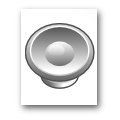Definify.com
Definition 2026
糞
糞
Translingual
Han character
糞 (radical 119 米+11, 17 strokes, cangjie input 火木田廿金 (FDWTC), four-corner 90801, composition ⿱米異)
References
- KangXi: page 912, character 26
- Dai Kanwa Jiten: character 27102
- Dae Jaweon: page 1339, character 20
- Hanyu Da Zidian: volume 5, page 3158, character 7
- Unihan data for U+7CDE
Chinese
| trad. | 糞 | |
|---|---|---|
| simp. | 粪 | |
Glyph origin
| Characters in the same phonetic series (糞) (Zhengzhang, 2003) | |
|---|---|
| Old Chinese | |
| 糞 | *pɯns |
| 瀵 | *pɯns, *pʰɯns |
Pronunciation
- Mandarin
- Cantonese (Jyutping): fan3
- Hakka (Sixian, PFS): fun / pun
- Min Dong (BUC): bóng
- Min Nan (POJ): pùn
- Wu (Wiktionary): fen (T2)
- Mandarin
- (Standard Chinese, Beijing)+
- Pinyin:
- Zhuyin: ㄈㄣˋ
- Wade-Giles: fên4
- Gwoyeu Romatzyh: fenn
- IPA (key): /fən⁵¹/
-

- (Standard Chinese, Beijing)+
- Cantonese
- (Standard Cantonese, Guangzhou)+
- Jyutping: fan3
- Yale: fan
- Cantonese Pinyin: fan3
- IPA (key): /fɐn³³/
- (Standard Cantonese, Guangzhou)+
- Hakka
- (Sixian, incl. Miaoli and Meinong)
- Pha̍k-fa-sṳ: fun / pun
- Hakka Romanization System: fun / bun
- Hagfa Pinyim: fun4 / bun4
- IPA: /fun⁵⁵/, /pun⁵⁵/
- (Sixian, incl. Miaoli and Meinong)
- Min Dong
- (Fuzhou)
- Bàng-uâ-cê: bóng
- IPA (key): /pouŋ²¹³/
- (Fuzhou)
- Min Nan
- (Hokkien)
- Pe̍h-ōe-jī: pùn
- Tâi-lô: pùn
- Phofsit Daibuun: puxn
- IPA (Xiamen): /pun²¹/
- IPA (Quanzhou): /pun⁴¹/
- IPA (Zhangzhou): /pun²¹/
- IPA (Taipei): /pun¹¹/
- IPA (Kaohsiung): /pun²¹/
- (Hokkien)
- Wu
- (Shanghainese)
- Wiktionary: fen (T2)
- IPA (key): /fəɲ³⁴/
- (Shanghainese)
| Rime | |
|---|---|
| Character | 糞 |
| Reading # | 1/1 |
| Initial (聲) | 幫 (1) |
| Final (韻) | 文 (59) |
| Tone (調) | Departing (H) |
| Openness (開合) | Closed |
| Division (等) | III |
| Fanqie | 方問切 |
| Reconstructions | |
| Zhengzhang Shangfang |
/pɨunH/ |
| Pan Wuyun |
/piunH/ |
| Shao Rongfen |
/piuənH/ |
| Edwin Pulleyblank |
/punH/ |
| Li Rong |
/piuənH/ |
| Wang Li |
/pĭuənH/ |
| Bernard Karlgren |
/pi̯uənH/ |
| Expected Mandarin Reflex |
fèn |
| Baxter-Sagart system 1.1 (2014) | |
|---|---|
| Character | 糞 |
| Reading # | 1/1 |
| Modern Beijing (Pinyin) |
fèn |
| Middle Chinese |
‹ pjunH › |
| Old Chinese |
/*p[u]r-s/ |
| English | manure, dirt |
Notes for Old Chinese notations in the Baxter-Sagart system: * Parentheses "()" indicate uncertain presence; | |
| Zhengzhang system (2003) | |
|---|---|
| Character | 糞 |
| Reading # | 1/1 |
| No. | 3197 |
| Phonetic component |
糞 |
| Rime group |
文 |
| Rime subdivision |
1 |
| Corresponding MC rime |
糞 |
| Old Chinese |
/*pɯns/ |
Definitions
糞
See also
- 屎 (shǐ)
Japanese
Kanji
Readings
Etymology 1
| Kanji in this term |
|---|
| 糞 |
|
くそ Hyōgaiji |
| kun'yomi |
Cognate with 臭い (kusai, “stinky, smelly”), 腐る (kusaru, “to rot, to become stinky”).[1]
Pronunciation
Alternative forms
Noun
Derived terms
Idioms
|
Interjection
Usage notes
This is not considered as profane as the English glosses. For instance, a child of five using the Japanese interjection kuso would be unremarkable, whereas it would be very socially inappropriate for a child of five to use the English interjection ****.
Prefix
糞 (hiragana くそ, romaji kuso-)
- A derogatory prefix.
- 糞爺い
- kusojijī
- crappy old man
- 糞爺い
Suffix
糞 (hiragana くそ, romaji -kuso)
- crappy, for ****: a derogatory emphasizing suffix.
- 下手糞
- hetakuso
- crappy bad at something; to be **** at doing something
- 襤褸糞
- borokuso
- broken down for ****, raggedy-ass
- 下手糞
Etymology 2
| Kanji in this term |
|---|
| 糞 |
|
ふん Hyōgaiji |
| on'yomi |
/pun/ → /fun/
From Middle Chinese 糞 (pjunH).
Pronunciation
Noun
糞 (hiragana ふん, katakana フン, romaji fun)
Usage notes
This noun specifically refers to the excrement of non-human animals; for human excrement, the term 大便 (daiben) is used.
Due to the complicated nature of this kanji, this word is often written in katakana instead.
Etymology 3
| Kanji in this term |
|---|
| 糞 |
|
ばば Hyōgaiji |
| kun'yomi |
Appears to derive from baby talk.[1][2] Compare English poopoo.
Pronunciation
- Kun'yomi
- (Tokyo) ばば [bàbá] (Heiban - [0])[2]
- (Tokyo) ばば [bàbáꜜ] (Odaka - [2])[2]
- IPA(key): [ba̠ba̠]
Alternative forms
Noun
Idioms
|
References
- 1 2 1988, 国語大辞典(新装版) (Kokugo Dai Jiten, Revised Edition) (in Japanese), Tōkyō: Shogakukan
- 1 2 3 4 5 2006, 大辞林 (Daijirin), Third Edition (in Japanese), Tōkyō: Sanseidō, ISBN 4-385-13905-9
- 1 2 1998, NHK日本語発音アクセント辞典 (NHK Japanese Pronunciation Accent Dictionary) (in Japanese), Tōkyō: NHK, ISBN 978-4-14-011112-3
Korean
Hanja
糞 • (bun) (hangeul 분)
- This term needs a translation to English. Please help out and add a translation, then remove the text
{{rfdef}}.
Vietnamese
Han character
糞 (phẩn, phân)
- This term needs a translation to English. Please help out and add a translation, then remove the text
{{rfdef}}.